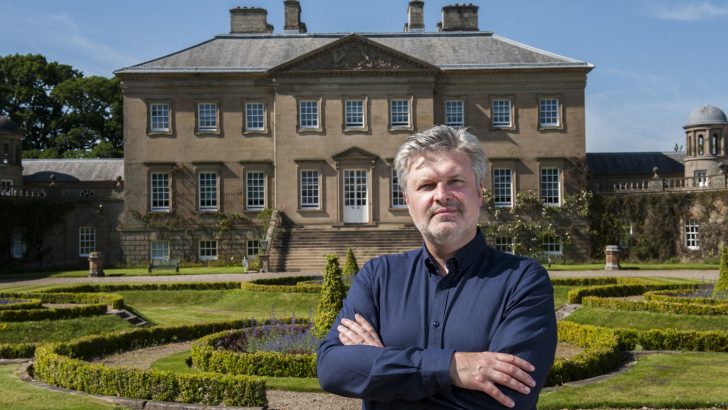Pat O’Kelly
Two recent Dublin events marked significant occasions. The first brought the Irish première of James MacMillan’s Stabat Mater as the closing concert of New Music Dublin at the National Concert Hall. The second came with the retirement, after 42 years devoted service, of Prof. Gerard Gillen as organiste titulaire of the Pro-Cathedral.
The pre-eminent Scottish composer of his generation, James MacMillan was born in Kilwinning, Ayrshire. He read music at Edinburgh University before taking his doctorate from Durham.
Among his compositions, the percussion concerto Veni, Veni Emmanuel, written for Evelyn Glennie, has received over 500 performances worldwide, including at least three here, since its première in 1992.
Unashamedly Catholic, MacMillan’s output includes many religious works not least his two Passions – St John of 2007 and St Luke written six years later. His Mass of Blessed John Henry Newman celebrated Venerable Newman’s beatification by Pope Benedict XVI on his visit to Britain in 2010. The sparse and compelling three-part Since it was the Day of Preparation, with its text taken from St John’s Gospel, dates from 2012.
Completed in 2016 at the behest of English choral group The Sixteen, and with its founder Harry Christophers describing MacMillan as a “truly great composer of sacred music’” the Stabat Mater performance here combined 16 Chamber Choir Ireland voices with 18 Irish Chamber Orchestra strings under the composer’s baton. It was a shattering experience.
MacMillan’s score may be anguished, aggressive and defiant but it is also poignant, reflective and ethereal. The scene at the foot of the Cross is depicted in vivid, yet subtle, musical imagery and I found the hour-long piece, with its touches of Gregorian chant, traditional Scottish and Middle-Eastern music, gripping, powerful and, ultimately, haunting.
Response
The musicians’ response to the composer’s inspiring direction was incisively trenchant and dramatically potent. Audience reaction was initially rapt silence before giving way to a standing ovation.
Dublin’s Pro-Cathedral was the unusual setting for another standing ovation following the 11am Mass on September 30. With Archbishop Diarmuid Martin presiding, the celebration was dignified and prayerful as well as joyous through Dvorák’s Mass in D. But with the Palestrina Choir, under Blánaid Murphy, and Gerard Gillen at the organ, it was also tinged with sadness as it marked the end of Dr Gillen’s tenure at the ‘Pro’. I felt the ovation was the congregation’s way of praising his service to the cathedral church for over four decades.
Besides his work at the ‘Pro’, Gerard Gillen was professor of music at Maynooth University where he developed the department to a remarkable standard of academic excellence and integrity. Continuing to enjoy an international reputation as recitalist, church musician and educationalist, he currently serves on the National Concert Hall’s board and is one of its honorary organ curators.
With tributes paid by Archbishop Martin and the ‘Pro’s’ administrator Fr Kieran McDermott, having known Gerard Gillen for a long time, I express my own sincere admiration for him on several levels and add that of a mutual friend, “more than a musician, Gerard Gillen is a gentleman in every respect


 James MacMillan
James MacMillan 